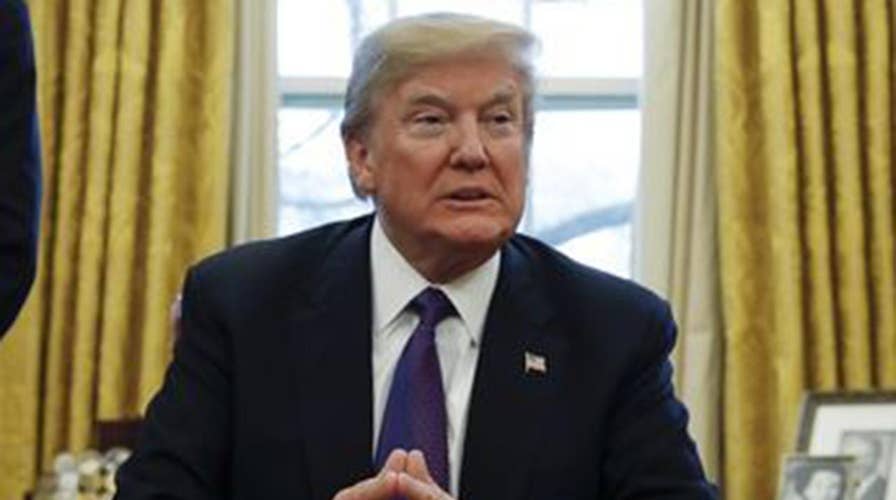Trump's tariffs benefit workers in battleground states
President announced new 25 percent tariff on steel imports, 10 percent tariff on aluminum imports; insight from The Hill's Jesse Byrnes.
Under pressure at home and abroad over his announcement of sanctions on imported aluminum and steel, President Trump indicated Tuesday there may be flexibility about how they are applied to some countries - if they play ball in return.
Trump has come under fire from international allies and lawmakers at home for the tariffs, which he said would be 25 percent on steel and 10 percent on aluminum. Canada, U.K. and the European Union have all spoken out against the tariffs -- with the European Commission threatening “countermeasures” should Trump's tariffs go ahead.
On Tuesday, Swedish Prime Minister Stefan Lofven said at a press conference at the White House alongside President Trump that Sweden opposed the tariffs, but added he understands Trump’s desire to look after his country.
At that conference, Trump stood by a threat he made Saturday, promising a car tax if the E.U. increased tariffs in response.
“If they do that then we put a big tax of 25 percent on their cars and believe me they won’t be doing it for very long,” he warned, pointing to an "unfair" trade setup between the E.U. and the U.S.
At the same time, he said he wants to implement them in a "loving, loving way" and also opened the door for a like-for-like reduction of tariffs with the E.U.
“Unless they can do something for us, as an example if the E.U. takes off some of the horrible barriers that make it impossible for our product to go into there, then we can start talking, otherwise we’ll leave it the way it is,” he said.
Trump also offered some possible flexibility for Canada and Mexico if they deal on renegotiating the North American Free Trade Agreement (NAFTA).
“We’re working on NAFTA, if we’re able to make a deal with Canada and Mexico on NAFTA, there will be no reason to do tariffs with Canada and Mexico,” he said.
This came after a tweet Monday in which he had echoed a similar sentiment.
“Tariffs on Steel and Aluminum will only come off if new & fair NAFTA agreement is signed,” Trump tweeted.
Treasury Secretary Steven Mnuchin reflected that rhetoric in a House hearing Tuesday.
“To the extent that we’re successful in renegotiating NAFTA, those tariffs won’t apply to Mexico and Canada,” he told lawmakers.
He also cooled down some of the rhetoric coming from Trump about a potential trade war.
“We are not looking to get into trade wars,” he said. “We are looking to make sure that U.S. companies can compete fairly around the world.”
The New York Times reported Tuesday that, in a call to British Prime Minister Theresa May, Trump disagreed with May’s assessment that the tariffs would be dangerous but concluded by telling her he had not made a final decision on what to do.
But in his remarks Tuesday, Trump also didn’t back down from some of his more aggressive rhetoric on trade wars.
“When we’re behind on every single country, trade wars aren’t so bad,” he said.





